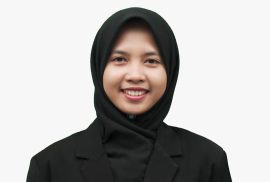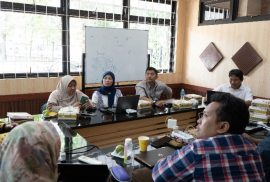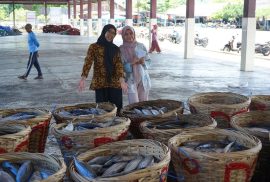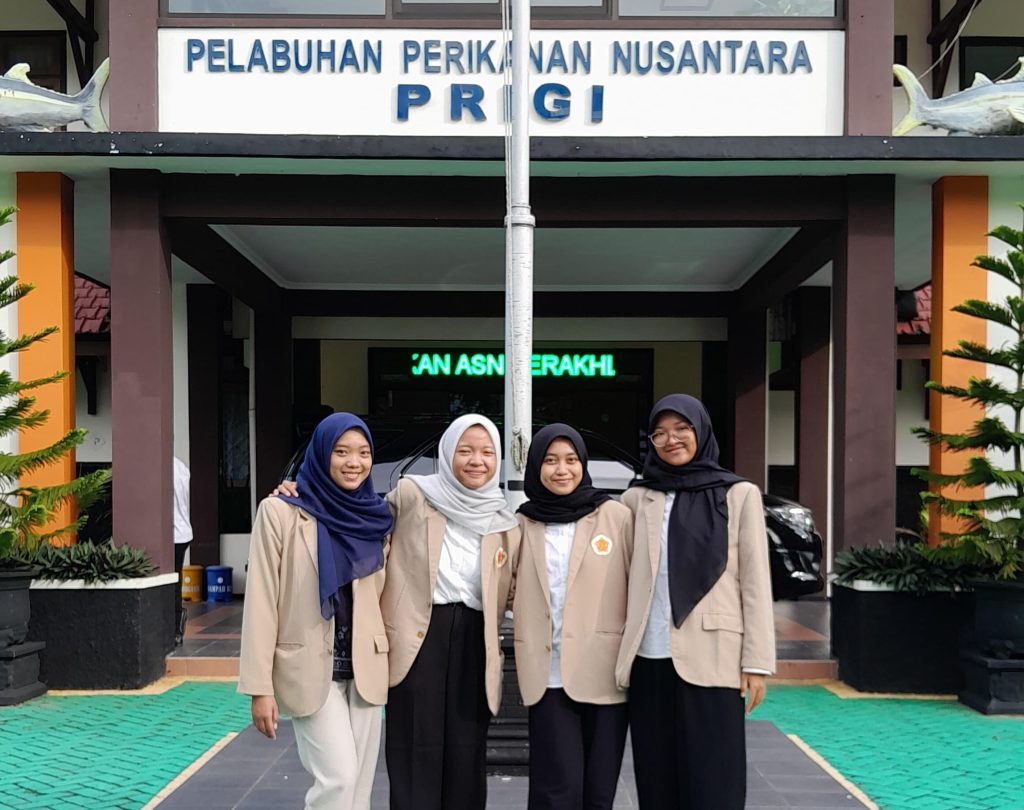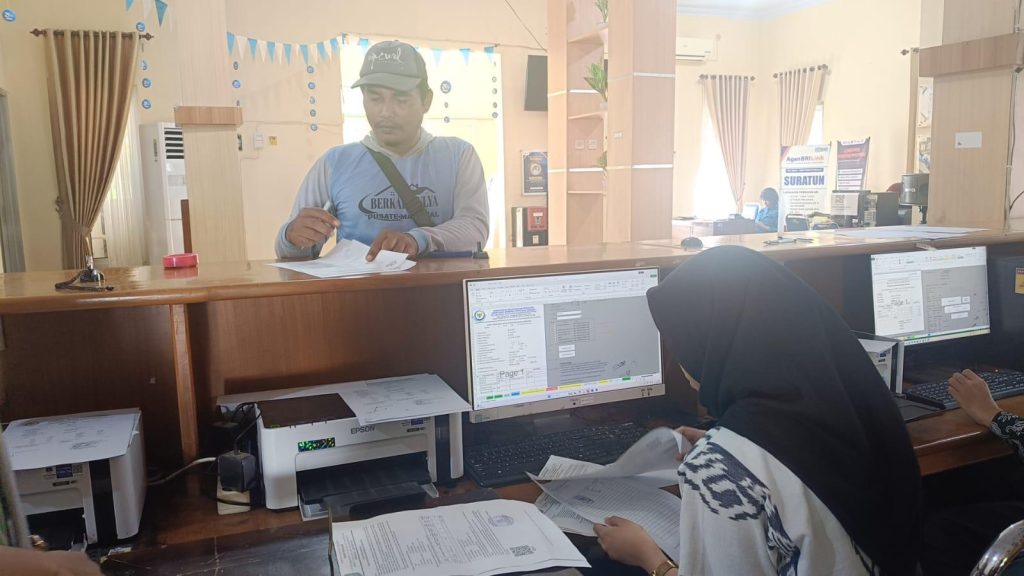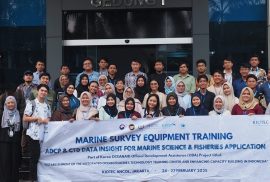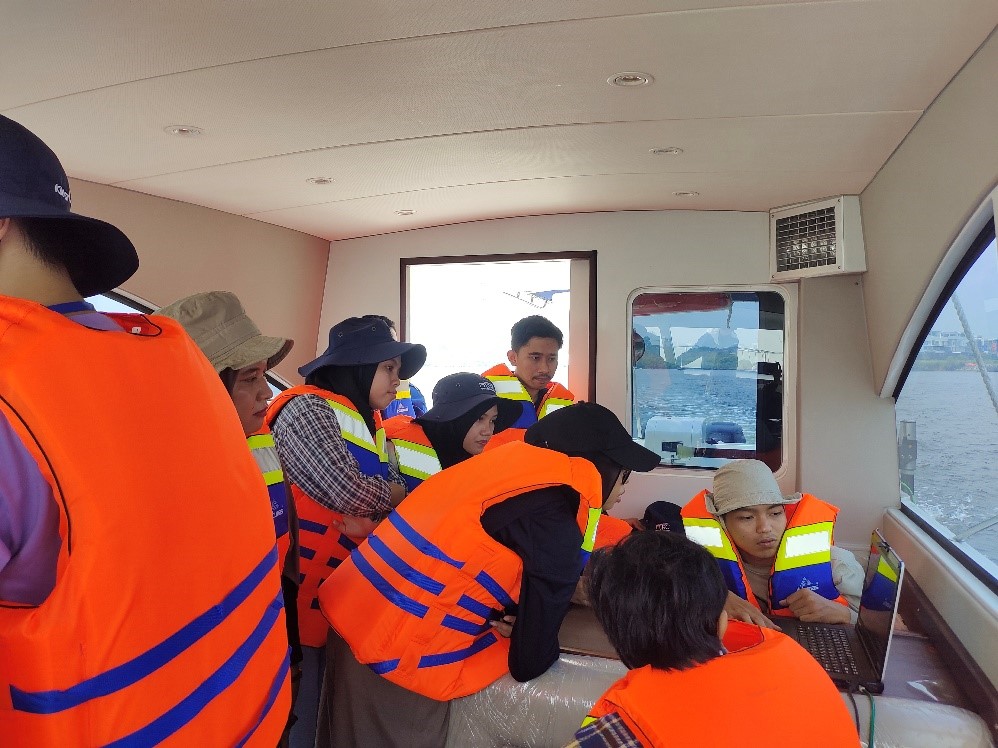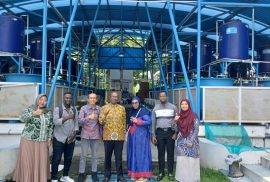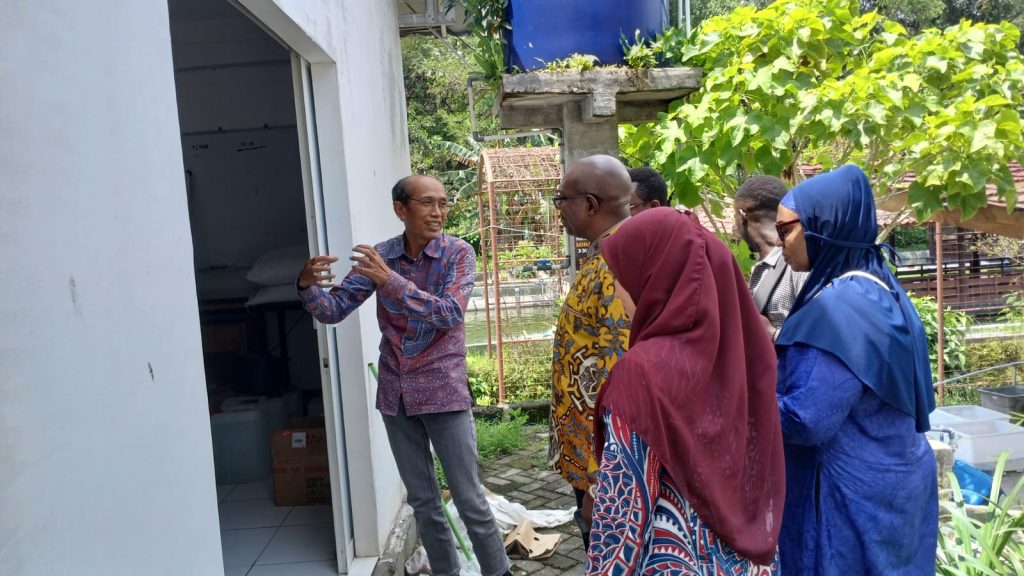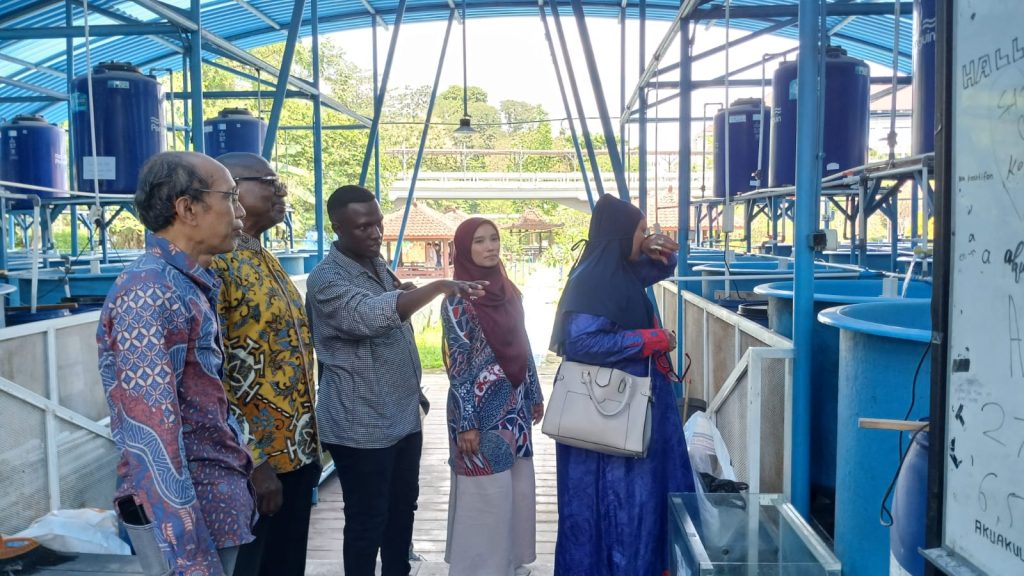Fermented Feather Meal Research for Fish Feed: The Potential of Sustainable Aquaculture
News Friday, 16 May 2025
A research team from the Department of Fisheries, Faculty of Agriculture, Universitas Gadjah Mada (UGM), has developed an innovation to utilize chicken feather waste as an alternative raw material for fish feed. While chicken feathers are commonly regarded as waste with no economic value, this research has proven that they can be processed into a valuable substitute for costly fish feed ingredients. The study, titled “Proximate and Amino Acid Analysis of Processed Chicken Feather Meal for Fish Feed,” focuses on enhancing the nutritional content of feather waste through fermentation and hydrolysis techniques.
The chicken feather waste was sourced from the Berbah Poultry Slaughterhouse in Sleman. The researchers applied fermentation using probiotics and chemical hydrolysis to break down keratin structures using hydrochloric acid and sodium hydroxide. The resulting feather meal was analyzed through proximate testing to determine moisture, ash, fat, and protein content, while amino acid content was analyzed using Liquid Chromatography Mass Spectrometry (LC-MS). These analyses were conducted to assess the effectiveness of the processing methods in improving the nutritional quality of the feed material.
The findings demonstrated that probiotic fermentation was the most effective method in enhancing the nutrient quality of the feather meal. The crude protein content reached 78.18%, marking a significant increase compared to other methods. Additionally, the levels of essential amino acids were promising, with isoleucine (14,763.26 µg/g), histidine (12,043.83 µg/g), glycine (326.51 µg/g), methionine (138.17 µg/g), arginine (33,321.63 µg/g), phenylalanine (22,815.65 µg/g), and leucine (44,511.41 µg/g). These results highlight the high potential of fermented feather meal as a high-quality protein source.
Beyond addressing livestock waste management, this research offers a sustainable and cost-effective alternative for aquaculture feed. Feed constitutes 60–70% of total fish farming production costs. By utilizing by-products such as fermented chicken feathers, economic efficiency can be improved without compromising feed quality or fish growth. However, further studies are necessary to evaluate the biological performance of fish fed with this alternative, including parameters such as growth, Feed Conversion Ratio (FCR), digestibility, and fish health. Although the high nutritional value of the processed feathers has been established, protein digestibility remains a major challenge. The keratin structure in feathers is difficult for fish to digest, requiring advanced biotechnological approaches such as the use of specific microbes or more efficient proteolytic enzymes for keratin hydrolysis.
Dr. Desy Putri Handayani, S.Pi., one of the lead researchers, stated that utilizing waste or by-products as a feed resource is a strategic step toward reducing production costs in aquaculture. “However, the application of chicken feather meal requires long-term research due to its low digestibility. Approaches such as microbial fermentation or safer and more efficient enzymatic hydrolysis technologies are needed,” she explained. She further emphasized that although chicken feathers hold immense potential as a protein source, technical challenges must be scientifically addressed. This research received funding support from the Doctoral Competency Enhancement Program at Universitas Gadjah Mada. It reflects UGM’s commitment to fostering applied research innovation focused on sustainability and local resource empowerment. The study aligns with several Sustainable Development Goals (SDGs), namely Goal 2: Zero Hunger, Goal 9: Industry, Innovation, and Infrastructure, Goal 12: Responsible Consumption and Production, and Goal 14: Life Below Water.
Author: Annisa Yustisia
Editors: Nahla Alfiatunnisa, S.Pi., Dr. Mukti Aprian, S.Kel., M.Si. (Han)

